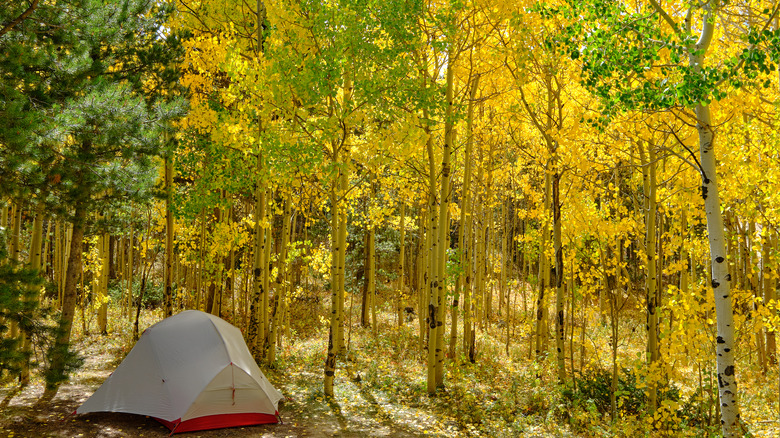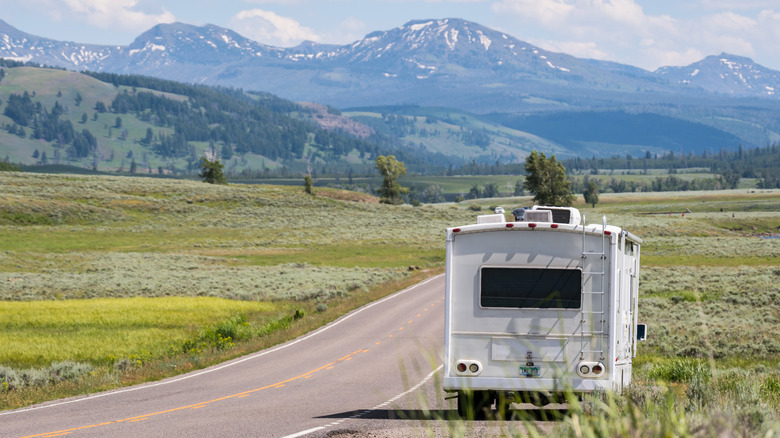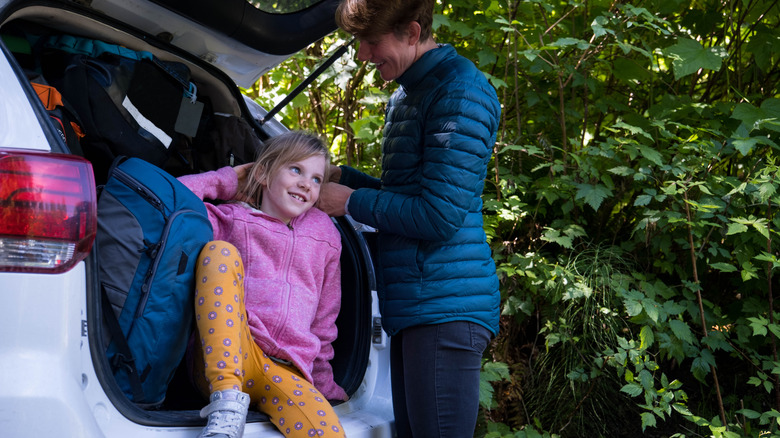Camping
Amanda Morgan
Spending a long weekend camping is the perfect way to get up close and personal with nature, unplug, and spend quality time with your loved ones. Over the past several years, camping has grown in popularity, meaning many of the most popular campgrounds book up well in advance. According to the 2023 North American Camping & Outdoor Hospitality Report, around 52 million households went camping at least once last year, and 92 million self-identified as campers. With so many families returning to the nostalgic pastime instead of other vacation options, there is a lot of competition when snagging a great campsite, especially within official national park campgrounds.
If you’re planning a camping trip, reserve your campsite well in advance to avoid the stressful situation of arriving at a fully booked campground. For spontaneous camping trips, booking your trip months in advance isn’t always possible. Whether you’re on a cross-country road trip and decide to make an unplanned stop or embark on a spur-of-the-moment adventure, you’ll need a backup plan in case the campground you’re visiting is fully booked when you arrive. Most importantly, don’t panic if you find yourself in this situation. You have plenty of options for finding a last-minute spot to set up camp — from national forests and RV-friendly parking lots to websites that allow you to book sites on private properties.
Here’s what to do if you’re tent camping

Drew Alfred/Shutterstock
Many campgrounds have more tent sites than RV hookups, so you already have a better chance of scouring a reservation. However, if you arrive at a fully booked campground, check for privately owned campgrounds in the surrounding area. Staff members at national park visitor centers should be able to offer some suggestions. Campground chains like KOAs often have hundreds of sites, making them less likely to book up far in advance. Chances are you can find a site without having to stray too far off your course.
Popular online homestay platforms like Airbnb are another great resource offering listings for campsites on private properties near outdoor destinations. Hipcamp is like Airbnb but is geared explicitly towards campers.
If you’re not finding availability at nearby campgrounds, or your heart is set on staying within the park you’re visiting, consider backcountry camping. Dispersed camping is permitted in the backcountry of most national parks in the United States, but you may need a permit. Some parks will allow you to apply for a permit in person same-day at a national park visitor center, while others require reservations in advance. The requirements will vary depending on the park, so check out Recreation.gov. If you’re worried your campground might fill up, consider applying for a permit a few weeks ahead. Dispersed camping in national forests is also legal, free, and usually doesn’t require a permit.
If you’re traveling in an RV or camper van

Cheri Alguire/Getty Images
Arriving at a campground without space can ruin an otherwise successful RV trip. If you’ve embraced van life, you’ve likely already spent a night or two in a Walmart parking lot during your adventures. Walmart has long been valued by roadtrippers and RV travelers as a safe place to stop for a night of rest, and it’s a great backup plan if you arrive at a full campground. Though it’s a company-wide policy, individual locations and store managers get to make the final call based on the availability of parking and local laws. It’s always a good idea to call ahead and double-check. Similarly, many Cabela’s and Bass Pro shops will allow you to park your rig overnight and may offer amenities like waste and water stations.
The Bureau of Land Management (BLM) land has free dispersed camping sites where RV travelers can park and camp for free for up to two weeks. Additionally, national forests allow vans and RVs to park on the shoulder and camp overnight as long as they don’t block traffic. If you’ve arrived at the campground late at night and you’re in a real pinch to find somewhere to park and get some sleep for the night, some states allow RV’s to park overnight at rest areas along the highways. There is often an 8- to 10-hour limit on parking, but it works in a pinch until you can find a better option.

